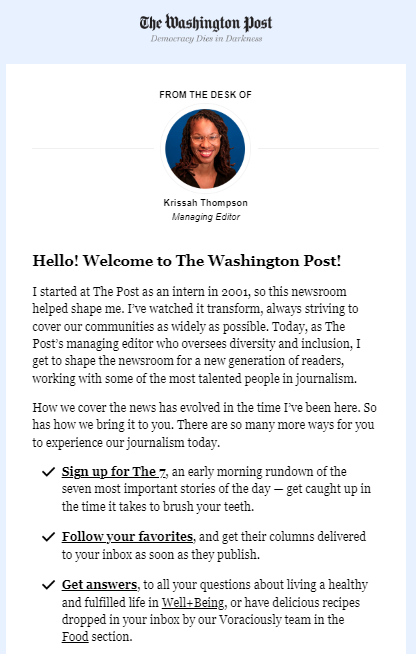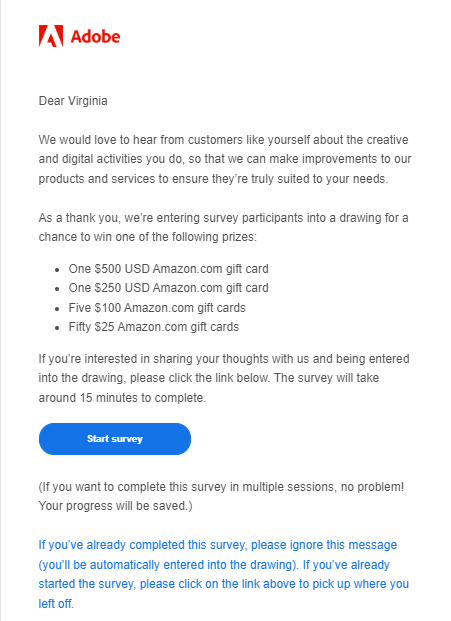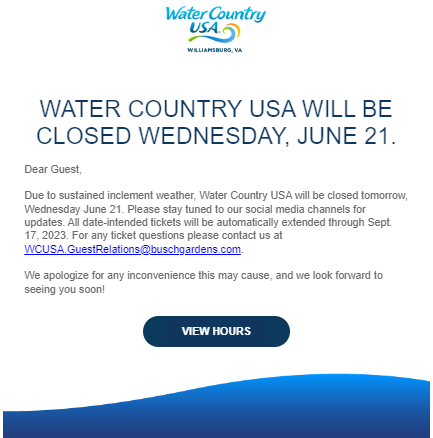|
Why is networking important for creating business success and wealth? The answer is simple. It's not a coincidence that hundreds, even thousands, of people are hired for positions over individuals who are more qualified and more experienced merely because they have cultivated relationships with key centers of influence. It's not a coincidence when one politician is elected into office over another because he has cultivated relationships with more individual voters than the opposition. Through networking, you will receive opportunities that will expand your current knowledge base, business, and wealth creation. Through networking, you will be put in positions to expand your current skills and learn to communicate at many levels. Networking is communicating with others to create mutually beneficial relationships. People often confuse networking with "quantity of contracts." However, the purpose of networking is simply to enhance your cause. Think of networking as the opening of doors to the unknown. You might be tempted to believe the more doors you have, the greater the odds you will make the right kinds of connections, but that is incorrect. Networking is intentional by design. By placing yourself in situations that attract others with whom mutually beneficial relationships can be established, you increase the potential payoffs. Therefore, one of the greatest traits of the networking leader is the ability to actively identify which doors to open. 5 Ways to network your way to business growth and wealth 1. Do your homework This might sound self-explanatory, but you'll be surprised at how many entrepreneurs overlook this part. Planning is a component of networking, and you will need to make lists and seek out resources that can answer basic questions about the person or organization you will be meeting. For instance, who knows the person you are trying to meet? Who else works with this person? Where do they live? I'm not suggesting you stalk your potential pool of networking targets; rather, sit down and list the information that might help increase the quality of your potential interactions. I learned the importance of doing your homework when I had the opportunity to have dinner with author Mary Higgins Clark. Despite the many possible ways of learning more about my famous upcoming dinner host, time required that I select only a few. Step one was a trip to my local bookstore — a place of great networking resources. I asked the person working behind the counter if she had ever heard of Mary Higgins Clark. "Oh yes," she replied, as she pointed to a display holding more than 10 of her books. Now I felt anxious; despite my desire to read what appeared to be stacks upon stacks of her best-selling novels, I purchased only three to read on the plane. As I left the bookstore, I found myself less anxious and more excited about my upcoming encounter. 2. Take the initiative and introduce yourself When meeting someone of notoriety, it is natural to be nervous about making a bad first impression, regardless of your own level of success. Even the most charismatic individuals say the wrong things out of nervousness or excitement. I think it's always wise to rely on politeness. This seems like an obvious suggestion until you mistakenly call someone by her first name after a two-minute introduction. Whether the person you are approaching is famous or not, it's always acceptable to ask, "How would you like to be addressed?" after introducing yourself. I also like to have a few questions in mind that begin with the phrase, "Tell me about…," followed by a reference to something I know about the person. Because most people like to talk about themselves, the more the conversation places emphasis on your new acquaintance — not why they should be thrilled to meet you — the more likely will be another encounter. Fortunately, I didn't have to make any decisions about how to approach my dinner host since Mary Higgins Clark greeted me as I approached her home. Still, outside, Mary and I talked about a host of topics, from our families and hobbies to the stock market. She was very interested in the market. She asked questions that, frankly, were rather complicated to answer. Instead of trying to impress her (a mistake often made when trying to make a good impression), I responded to her questions with simple, easy-to-understand answers. 3. Make it about them You never want to make yourself sound better, smarter, or more knowledgeable than your partners in conversation. When you do this, you appear condescending, and, despite your desire to build a foundation for additional interaction, you may have just closed the door. In fact, it should be your goal to ask more questions than you answer. Keep the other person engaged in the conversation by having them share information about themselves. Find a common interest. Last, do what is needed to make yourself appear approachable. Offering your business card is just one way to ensure this happens. Much to my delight, my use of effective networking skills with Mary Higgins Clark was immediately rewarded. For example, as I was leaving after a wonderful evening of conversation over a New England dinner, Mary asked if she could talk to me for a minute. I walked with her to the corner of the room, where she said, "I really like you and how easily you explained the answers to my questions. I'm looking to open an investment account with another company, and I'd like to open the account with you." 4. Stay in frequent contact Why did this happen? Simply because I took the initiative to stay in contact. There are many ways you can do this. Writing thank you cards, sending articles of interest with a note, or remembering events of significance with flowers are all examples of frequent contact. Sending an e-mail message — although impersonal when compared to a letter — also keeps your name and contact information out there. Call certain contacts periodically, and, if you happen to be in their area, take them to lunch or give them a quick call to say hello. 5. Look for ways to offer praise Making others feel good is essential for walking through doors once they have been opened. Congratulating someone for their accomplishments or thanking them for taking the time to speak with you are ways to praise. This does not mean you should act like a crazed fan; instead, think about what you could say that would make the other person feel good about themselves. Praise for your own accomplishments can lead to a competitive tone in your conversations. Having a calm sense of self while praising others makes you appear self-confident and much more worthy of additional contacts. Final words No successful entrepreneur achieves business or financial goals without the assistance of others. It doesn't matter how knowledgeable, qualified, or experienced you are: Without the assistance of others, you will probably fail to excel. Push yourself to stretch outside your immediate comfort zone, seek different ideas, and discover a world of potential opportunities for yourself and your business. Mastering the art of networking will enhance your abilities and opportunities to create the business growth and wealth you desire. Source: https://www.entrepreneur.com
0 Comments
For any successful business, client management is not an option — it’s a priority. McKinsey & Company found that across industries, customer experience leaders experience double the growth compared to their peers. Client management refers to managing customer and client relationships for a business organization. Successful client management results in happy, loyal customers who return to the company whenever they need its products or services. Typically, the people in charge of client management within an organization work in sales, customer service, or marketing roles. Client managers oversee, build, develop, and strengthen relationships with customers. They design and implement customer relationship development strategies to connect with the organization’s clients over the long term. With effective client management, you not only ensure your clients are happy but also deepen those relationships to help your business grow. The importance of effective client management Client management is imperative for any company that wants to build a reliable, dedicated customer base. When you develop strong relationships with clients, they’re less likely to turn to your competitors when they need products or services you sell. Instead, they’ll stick with your organization, boosting your revenue and allowing you to meet financial objectives. Satisfied customers will tell their friends, colleagues, and family about their experience with your organization, getting you more clients and generating additional sales. Plus, you’ll develop a positive reputation within your industry. Core principles of client management To develop solid client relationships, you must first understand your customer’s needs. When you know what your clients want from your organization, you can develop a comprehensive management strategy. Setting realistic expectations Not all clients will stick with your company for the long term. That’s true for any organization. There are some aspects of a customer’s decision-making process you can’t control, no matter how hard you work to strengthen relationships or meet a client’s needs. For instance, assume you sell toddler clothing through an e-commerce website. Your clients are adults with young children. Once their kids outgrow the clothes you sell, they’ll stop buying from you. They no longer require your products, but that doesn’t mean they don’t appreciate your business. With effective client management, however, you can get them to refer your business to other new parents they know. It’s essential to set an attainable goal for your client retention and management efforts. While 100% retention probably isn’t realistic, 50% might be. Reasonable expectations depend on your business model and industry. You might set initial benchmarks and work toward meeting them. Value of honesty and transparency Customers value honesty and authenticity. A Harris Poll survey found that 82% of customers want a brand’s values to match theirs. It’s essential to reach them where it counts — in their minds and hearts. Try to avoid spammy messages and cold calls that frustrate buyers and turn them away from your company. Instead, keep their needs in mind and ensure your messages provide something they value, like:
Consistent and fast communication Whenever a customer contacts your company directly, they usually have a pressing need they want you to address. Have a system in place so you can always respond to customer inquiries quickly and efficiently. For example, you might set up a dedicated customer service line or a team to reply to incoming client emails. Promptly responding to client requests will help you sustain customer relationships. Understanding your client’s needs Think about prior positive experiences with your customers. What did you provide them that made them happy with their purchase? Did they love the products or services you offered? Did you help them through the buying process, ensuring they found a suitable item to address their needs? Were your follow-ups sincere and helpful? When you know what your customers want, it’s easier to identify ways to meet their needs. Of course, every client is different, so consider segmenting your customer base according to various factors, like:
That way, you can identify differing customer needs across your audience. Building trust with your clients Find ways to demonstrate your company’s trustworthiness and credibility. Doing so will make establishing connections with your customers more straightforward, which you can build on over time. For instance, you might showcase prior customer testimonials or reviews to show how much previous clients enjoyed your products. When new clients see that others enjoy your services, they’ll be more likely to trust what you offer. Measuring success in client management Establish key productivity indicators (KPIs) to evaluate your client management efforts. Some examples of CRM metrics include:
You can set benchmark client management KPIs and track your results against your goals. Focusing on long-term goals While accomplishing short-term objectives is great, it’s also a good idea to set some long-term goals for your client management efforts. Define what’s important to your company and work to meet your target over the next year, five years, or ten years. For example, you might aim to increase client retention by 10% or attain a number of five-star customer reviews. Client management skills Certain qualities can help you achieve your customer management objectives. Universal skills for successful client management skills No matter what industry your company is in, there are a few ubiquitous traits that are beneficial for client management. Active listening and responsiveness Customers want you to hear and understand their needs. Listen to what they tell you rather than assuming you know what they want. Take notes of their concerns and pain points, and truly engage in the conversation. Ask questions if you’re unsure of what they’re saying. Keep in mind that when a customer communicates directly with your company, they expect a quick response. Set processes in place to answer client phone calls, emails, and other messages within a short timeframe. Problem-solving and creativity When addressing a customer’s inquiries, put your problem-solving and creativity skills to work. Understand their issue and identify ways to resolve it without friction. For instance, say your client placed an order with your local shop, but it arrived late. They call you and express their dissatisfaction. If your store is within a reasonable distance, you could assign a team member to hand-deliver the item immediately and provide them a gift or special discount for the inconvenience. That would help you repair any damage to your client relationship and encourage them to return next time they need your products. Negotiation and patience Not every customer encounter will be pleasant. Sometimes, clients may express frustration, make impolite comments, or treat you poorly despite your best efforts to meet their needs. If you’re dealing with a difficult customer, maintain your cool and keep your client management goals in mind. Try to negotiate with them or explain your policies so they understand. Strategies for managing client relationships Here are a few ways you can build and develop strong client relationships. Strategic communication and follow-ups Any time a customer browses your store or inquires about your services, use it as an opportunity to communicate with them. If they’ve signed up for your email or SMS subscription list, send them a quick follow-up message encouraging them to take further action or letting them know you’re here for them if they have additional inquiries. For example, look at this welcome email from The Washington Post. It encourages the subscriber to sign up for daily news updates and follow favorite columns to stay on top of what’s going on in the world. A welcome email from The Washington Post introducing the recipient to other features and updates that might interest them. Image Source: The Washington Post Methods to collect and act on client feedback Once a client purchases from you, it’s crucial to get their feedback. Customer insights help you understand where you’re meeting client needs and where you can improve. Take a look at this email from Adobe. It asks the recipient to complete a short survey about their creative and digital activities to help Adobe improve its current product and services. In exchange for completing the survey, the recipient gets entered into a drawing for a gift card. The email accomplishes two things: it helps Adobe learn more about customer needs and offers clients a potential reward for providing feedback. Adobe’s message encourages clients to complete a product survey for feedback that can be used to improve products and services. Image Source: Adobe Maintaining a positive attitude with clients Sometimes, customers will express frustration with their experience. Perhaps the customer service wasn’t up to par, or their purchased product didn’t meet their expectations. Or, maybe you need to notify clients of a closure or product discontinuation. Whatever the reason, it’s essential to maintain positivity in your communications and address their concerns. Take this example from Water Country USA. During an inclement weather event, they closed for the day but emailed clients, informing them of ticket refund options and apologizing. This Water Country USA email notifying clients of a closure due to inclement weather keeps a positive tone and advises clients of their ticket options. Image Source: Water Country USA Client management tools You can use various client relationship management tools to up your game. The role of automation and software in client management As your client base grows, it becomes more challenging to stay on top of one-on-one communications. You can’t be everywhere at once, and you may have other responsibilities. That’s where marketing automation tools can help. You can purchase software to automate transactional emails and texts. For instance, you might set up automatic emails for shipping updates or client feedback surveys. You can schedule them to be sent whenever a client takes a particular action with your company, like when they make a purchase. Using client management systems effectively Client management systems allow you to oversee your customer interactions in one place. Some include multiple tools, like customer relationship management (CRM) software and project management features. You can use them to establish your client management structure, track communications, and evaluate client management results. If you manage contacts for a small business, look for free client management software options. While free software will likely have minimal features, it can help you establish a baseline for future client management strategies. Integration with CRM systems for holistic management CRM systems connect directly with your client management software, allowing you to manage customer interactions and streamline communication processes. Constant Contact’s CRM integrates with multiple systems you might already use, including social media and e-commerce platforms and tools like Salesforce, Gmail, and SurveyMonkey. Plus, you can use it to manage your client contacts, customer accounts, and ongoing sales deals. Handling client segmentation and real-time analytics As you initiate your client management strategies, use client segmentation to categorize your customers according to their:
That way, you can design client management processes that speak to your customer’s specific needs. It’s also important to establish KPIs to monitor your client management efforts. Most client relations management software systems include real-time analytic options, which you can review whenever you like. Overcoming client management challenges It’s not uncommon to encounter a few obstacles when managing client relations. Here are a few to look out for:
If you experience customer difficulties, remain patient and discuss the issue. Most clients will recognize your efforts and work with you if they see you’re trying to address their problem. Improving client management practices As you implement your client management processes, look for ways to enhance your efforts.
The future of client management Technological advancements will likely change the client management landscape in the future. Automation and artificial intelligence (AI) will continue to make their mark in client management software, and companies will find ways to anticipate client needs and improve customer service. To stay ahead of the curve, understand the principles of client management and how they apply to your company. Then, implement practices to keep your customers happy and connected with your business! Source: https://www.constantcontact.com
More than 100 million people are gearing up to watch the big game on Sunday. Between watch parties, wings, beverages, commercials, the halftime show, and much more, excitement is widespread. Beyond entertainment, the game serves as a super opportunity for small businesses in the Las Vegas area to capitalize on increased spending, foot traffic and excitement from hopeful fans either looking to tie the record for most championships, continue a dynasty or just take in the world's biggest game. While Sunday's game only comes to one city per year, international sporting events, concert tours, conventions and other monumental events regularly provide much-welcomed boosts to local economies. Last year's big game in Phoenix saw an average 25.6% increase in spending at local restaurants and bars when compared to other weekends in February. Last summer, Beyoncé, Taylor Swift and Barbenheimer added an estimated $8.5 billion to the U.S. economy in Q3 2023, and the 2024 Summer Olympics could generate up to €10.7 billion in economic benefits in France later this year. With a fresh calendar year of events kicking off, here are four strategies small business owners can use to capitalize on the excitement: Create themed goods and services Most people traveling for a big event want to immerse themselves in the excitement and return with personal keepsakes or gifts. This unique demand presents an opportunity for small business owners to get creative with trending themes. Last year, bakeries near movie theaters created pink Barbie-themed pastries, and restaurants tapped into the economic power of Swifties by decorating in accordance with an "Era." In Houston, bars prepped for the NCAA Men's Basketball Tournament by blasting schools' fight songs to lure in patrons. In Boston, Chicago and New York, retailers ran discounts on marathon-themed merchandise. In Las Vegas, we expect to see casinos, hotels, bars and restaurants tweak their menus to offer championship-level meals and game-day cocktails. Whatever the event is, be well-versed on why people are jumping on flights to attend, get creative, and capitalize authentically on attendees' excitement. Offer targeted promotions and discounts While event tourism brings in fresh energy, staying in a city — let alone traveling to and attending a major event—can put a dent in your bank account. Having spent a small fortune just to get there, many eventgoers will be looking for deals. This bodes well for business owners, as there are opportunities to attract customers with clever discounts and promotions. A few major factors to consider when implementing a promotion are timing, target audience, and reach. Consider partnering with other local businesses to maximize your reach. For example: "Buy one, get one on themed merchandise at our retailer, and receive a coupon to do the same with appetizers at the restaurant next door." You should also time your promotions around the event. If you're a bar, hotel, or retailer near the venue, offer a happy hour before, special rates the weekend before, or discounted items during the lead-up. Other service providers near the host city have opportunities, too. Personal trainers can offer discounted rates to people visiting town, or photographers can offer to take pictures of people outside the event. There are many ways to lure an influx of customers into your business without having to veer too far from your traditional promotional efforts. Plan complementary events The signature event people are flocking to town for doesn't need to be the only thing they're looking forward to. By planning complementary events, your business can also be a destination where that out-of-town energy is spent. In addition to improving sales, gatherings can help you build stronger relationships with your customers. Consider what the expected crowd is interested in, make an event out of it, and show your appreciation to all who showed up for a great time. You don't have to limit activities to the lead-up to the big event, either. Like thousands of Swifties who "Taylgated" Taylor Swift's concerts during the show, many people who didn't or couldn't spend the money associated with being inside the venue still spent time traveling to the host city and soaking in all the energy and excitement. Consider providing fans with the next best thing, hosting a watch party, or catering a tailgate. Depending on the event, some fans may want to keep the party going. If that's the case, perhaps a victory party for the winning fan base or a local cover band playing encores is in order. Mind the logistics Regardless of how you market your business to eventgoers, you must be prepared to handle the altered business environment during a major event. Increased crowds can either be an opportunity or a burden for your business, so consider whether you'll benefit from having additional inventory, staffing, or operational hours to ensure you'll seize the moment. Getting creative with temporary product names and designs is a great way to boost business, but be wary of running afoul of licensing and copyright laws as well. Events like this Sunday's only come to cities every so often, and moments like these can be some of the most exciting parts of the entrepreneurship journey. The benefits they could have for your business are endless, so enjoy them and strive to take full advantage of them. Source: https://www.entrepreneur.com
Where to Find Event Planning Services Finding reliable event planning services is crucial for the success of your business event. Fortunately, multiple avenues exist to explore when searching for the perfect fit. No matter how you go about selecting the best event planning service, however, remember that it’s important to do thorough research, read reviews and interview potential event planning services before making a decision, so you can be sure to find a service that aligns with your business’s needs, ultimately delivering a fun and successful event. Looking for an event planning service? Take a look at what’s available using the following resources:
The Importance of Event Planning Services In the business world, strategic event planning remains highly important. It not only enables businesses to showcase their competence and vision, but also it helps cultivate meaningful relationships with stakeholders. An expertly-planned event can become an influential communication tool that speaks volumes about your company’s professionalism, values and dedication to excellence. Considering the potential impact, a few key elements of event planning services are vital to producing a dream event:
What Event Planners Do Event planners are seasoned professionals who bring a wealth of expertise and creativity to the table. Their responsibilities encompass a variety of tasks critical to an event’s successful execution. And event planner or coordinator’s role begins with conceptualization, through which they gain an understanding of a client’s vision, define event objectives and brainstorm ideas. The initial planning stage might entail budgeting, date selection and choice of a theme. An event planner next is tasked with organizing logistics, which could include everything from scouting and booking venues or liaising with vendors to managing invites and registrations, arranging transportation and ensuring compliance with safety and health regulations. On the day of the event, an event planner oversees operations, handles unforeseen issues, coordinates staff and ensures all runs smoothly and according to plan. Post-event, they typically collect feedback, analyze the event’s performance and settle payments. The value an event planner brings to a business is immeasurable. They relieve the stress of event planning, allowing a small business owner and their team to focus on their primary operations. Likewise, their expertise can save costs, increase event effectiveness and elevate a company’s image, ensuring the event meets its intended objectives and delivers a lasting impression among your target audience. The Event Planning Process: From Conception to Execution Diving into the intricacies of event planning might appear daunting, but for seasoned event planners, it’s an orchestrated dance of multiple elements, each choreographed with precision. If your aim is to conceptualize and helm a successful professional event, attention to these pivotal stages is indispensable:
Key Features of Full Service Event Planning Opting for full-service event planning services ensures businesses enjoy stress-free event experiences. Small business owners and guests can focus on networking and enjoying the event, while the event planner handles the detailed planning and execution, making the event a successful and memorable affair. Choosing full-service event planning can provide significant advantages to businesses, especially when looking to host an impactful event without getting entangled in the intricate logistics it entails. A few benefits of hiring professional event planning services include:
How Full Service Event Planning Streamlines Your Business Events Full service event planning can streamline your business events, providing a seamless, efficient and stress-free experience for everyone involved. By handing over event logistics to experienced professionals, businesses can concentrate on their core operations and objectives. A full service event planning service can streamline and support your business events in a variety of ways, including:
Evaluating and Choosing the Right Event Planner Evaluating and choosing the right event planner is a critical step for businesses aiming to host successful events. The right event planner can not only bring your vision to life but also ensure that your event achieves its intended goals, whether it’s enhancing brand visibility, fostering client relationships, or celebrating milestones. Here’s some tips to help you make an informed decision when selecting an event planner: Understand Your Event Needs
Research and Shortlist Event Planners
Evaluate Their Experience and Portfolio
Assess Their Services and Specialization
Conduct Interviews
Discuss Budget and Fees
Making the Decision
By thoroughly evaluating and choosing the right event planner, you can ensure that your event not only meets but exceeds expectations, leaving a lasting impression on your attendees and advancing your business objectives. Post-Event Analysis and Follow-Up Post-event analysis and follow-up are essential components of the event planning process, providing valuable insights into the event’s success and areas for improvement. These steps ensure that the effort put into organizing the event translates into tangible outcomes for your business, such as strengthened relationships, enhanced brand recognition, and actionable feedback for future events. Here’s how to effectively approach post-event analysis and follow-up: Conduct a Thorough Debriefing
Analyze Event Data
Evaluate Objectives and ROI
Implement a Follow-Up Strategy
Document Insights and Lessons Learned
By dedicating time and resources to post-event analysis and follow-up, businesses can maximize the value of their events, foster lasting relationships with stakeholders, and lay the groundwork for future event success. This iterative process of reflection and improvement is key to achieving long-term event planning excellence. From Corporate Events to Wedding Planning: The Versatility of Event Planning Services Event planning services are remarkably versatile, and they manage an array of events suiting a multitude of needs. Event planners’ expertise ranges from corporate events like conferences, trade shows and product launches to social gatherings like weddings and anniversaries. Corporate event planning focuses on professional gatherings. These events might be set up as internal events like small team-building exercises and holiday parties or external ones like client appreciation events, industry conferences, grand openings or even fashion shows. A corporate event planner ensures the event aligns with the company’s brand image, meets its objectives and provides value to the attendees. Wedding planning, on the other hand, is a more personal endeavor. A wedding planner closely collaborates with the lucky couple to bring their vision of the special day to life. They handle a variety of tasks, including venue selection, caterer coordination, decor design and timeline creation, thereby ensuring that every detail aligns with the couple’s wishes and the event runs smoothly. The versatility of event planning services means they can adapt to different requirements and expectations, tailoring their services to match the specific needs and objectives of the event, whether a corporate gathering or a personal celebration. By choosing a professional event planning service, you ensure your event, regardless of its type, is in expert hands. Frequently Asked Questions about Event Planning Services What does an event planner do? An event planner coordinates all professional or personal events, from conception to execution. Even planning tasks include understanding client objectives, creating event concepts, budgeting, venue scouting, vendor negotiations, handling event registration and ticketing, and preparing contingency plans. On the day of the event, an event planner manages operations, coordinates with vendors and staff, and troubleshoots any arising issues. Post-event, event planners handle feedback collection, performance analysis and payment settlements. The important role helps ensure a smooth, efficient and successful event. Why should you hire a full service event planning company? Hiring a full-service event planning company offers several advantages to small business owners. It provides a holistic approach to event management, covering everything from concept design to post-event cleanup. By doing so, an event planning service saves businesses valuable time and resources, allowing them to focus on their core operations. Event planning companies bring professional expertise and industry connections, which can lead to better deals with vendors and a higher quality event. Plus, event planners’ in-depth knowledge helps mitigate potential risks, manage unexpected issues and ensure a seamless execution of the event, all contributing to a positive brand image and a memorable experience for attendees. What types of events can an event planner organize? An event planner can organize all sorts of events. In the corporate world, event planners handle conferences, trade shows, product launches, company retreats and team-building activities. They also can plan social events such as weddings, anniversaries, birthdays, charity events and public events like concerts and festivals. While some event planners specialize in certain events, others offer a broader range of services. This versatility makes them valuable in organizing successful events that meet specific objectives and create memorable experiences. How does the planning process work for an event? The event planning process is a multi-step journey, beginning with the conceptualization stage, when the event planner and client define the event’s vision, objectives and budget. The next stage, planning, involves organizing logistics like venue booking, vendor negotiations and creating a timeline. The preparation phase follows, including finalizing contracts, sending invitations, managing RSVPs and preparing contingency plans. On the day of the event, the execution stage occurs as the planner manages operations, coordinates vendor management and handles any arising issues. Following the event, the evaluation phase of event production occurs as feedback is collected, performance is analyzed and vendor payments are settled. This process ensures a thorough and professional approach to event management. Where can you find reliable event planning services? Small business owners can locate reliable event planning services through a variety of sources. Online platforms like Eventective, Thumbtack and Bark list a host of event planners with reviews and ratings. Professional networks like LinkedIn also offer a platform to connect with event planners. Local business directories or your local Chamber of Commerce can provide listings of event planning services in your area. Don’t overlook word of mouth recommendations from colleagues, friends, or family, as these opinions can be invaluable. You even can look to social media platforms like Instagram and Pinterest where many event planners showcase their work, allowing you to assess their style and capability. Source: https://smallbiztrends.com Image: Envato Elements
|
Membership is open to businesses and organizations interested in increasing visibility and brand awareness in Westchester County and surrounding areas.
Archives
May 2024
Categories
All
|














 RSS Feed
RSS Feed